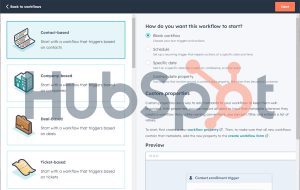AI-Powered Personalization in Marketing: The Revolution of Artificial Intelligence in Tailored Marketing Campaigns

Artificial intelligence has revolutionized the way businesses approach marketing, especially in personalization strategies. The evolution of AI-powered personalization in marketing has significantly impacted tailored marketing campaigns, reshaping the modern marketing landscape.
AI-driven personalization goes beyond demographic segmentation to create hyper-personalized experiences for customers. It enables businesses to analyze vast amounts of data and predict individual preferences, behaviors, and purchasing patterns, allowing for the delivery of targeted and relevant content.
The importance of AI-powered personalization in marketing cannot be overstated. It not only enhances customer engagement but also contributes to increased conversion rates and long-term customer loyalty. As AI continues to advance, its role in crafting tailored marketing campaigns becomes increasingly vital for businesses striving to stay ahead in the competitive market.
In this blog post, we will delve into the significance of AI-powered personalization in marketing and explore the transformative impact of artificial intelligence on tailored marketing campaigns. Stay tuned to gain insights into leveraging AI for enhanced customer experiences and unparalleled marketing effectiveness.
Understanding AI-Powered Personalization in Marketing
In today’s digital age, the utilization of AI-powered personalization has become a game-changer in marketing. Through advanced algorithms and machine learning, AI has revolutionized the way brands connect with their target audience by delivering tailored marketing campaigns that resonate with individual consumers on a deeper level.
Defining AI-Powered Personalization
AI-powered personalization involves the use of artificial intelligence to analyze consumer data and behavior, allowing marketers to create highly personalized experiences for their audience. By leveraging AI, marketers can gather insights into consumer preferences, purchase history, and online interactions to deliver tailored content, product recommendations, and promotional offers. This level of personalization ensures that each customer feels understood and valued, ultimately leading to increased engagement and conversions.
Evolution of AI in Marketing
The evolution of AI in marketing has been characterized by significant milestones and technological advancements that have reshaped the landscape of personalized marketing strategies. From the early adoption of predictive analytics to the implementation of sophisticated AI-driven chatbots and recommendation engines, the integration of AI technology has enabled marketers to move beyond generic, mass-targeted campaigns to hyper-targeted, individualized marketing initiatives.
As AI continues to evolve, its role in marketing will only become more pivotal, enabling brands to stay ahead of consumer expectations and deliver personalized experiences that drive meaningful connections and long-term customer loyalty.
The Role of Artificial Intelligence in Tailored Marketing Campaigns
Artificial Intelligence (AI) has revolutionized the way marketers approach personalized campaigns by offering sophisticated tools for data analysis and customer insights, hyper-personalization, and predictive analytics.
Data Analysis and Customer Insights
AI empowers marketers to process large volumes of customer data swiftly and accurately, extracting invaluable insights that form the foundation for creating targeted and personalized campaigns. By delving into diverse data sets such as purchase history, demographic information, and online behavior, AI helps marketers understand customer preferences and behaviors on a granular level. This deep understanding allows for the creation of more relevant and personalized marketing content, leading to a heightened potential for customer engagement and conversion.
Hyper-Personalization and Customer Experience
With the assistance of AI, marketers can implement hyper-personalization strategies that cater to individual customer preferences and needs. By leveraging AI-powered algorithms, companies can deliver personalized recommendations, dynamic content, and tailored experiences at scale. The result is an enhanced customer experience that leaves individuals feeling understood and valued, ultimately strengthening brand loyalty and advocacy.
Predictive Analytics and Behavioral Targeting
AI equips marketers with the capability to forecast customer behavior trends and preferences through predictive analytics and behavioral targeting. By analyzing historical data and patterns, AI can predict future actions and preferences, enabling marketers to proactively tailor their campaigns to meet the specific needs and expectations of their audience. This proactive approach leads to more relevant and timely interactions, fostering stronger connections between brands and their customers.
AI-Powered Personalization Techniques
In today’s marketing landscape, AI-powered personalization techniques have revolutionized the way businesses tailor their marketing campaigns to individual consumers. Leveraging advanced algorithms and machine learning, artificial intelligence has enabled marketers to create highly targeted and personalized experiences for their audiences, leading to improved engagement, conversion rates, and customer satisfaction.
1. Data Analysis and Prediction
AI-powered personalization begins with the comprehensive analysis of customer data. By harnessing the power of AI algorithms, marketers can gain valuable insights into consumer behavior, preferences, and purchase patterns. This data analysis allows for the prediction of future actions and interests, enabling marketers to proactively personalize their marketing efforts for maximum impact.
2. Dynamic Content Generation
With AI, marketers can dynamically generate personalized content based on individual user preferences, demographics, and browsing history. This includes personalized product recommendations, tailored email content, and individualized website experiences. By delivering the right content to the right audience at the right time, businesses can significantly enhance customer engagement and drive conversion rates.
3. Behavioral Targeting and Segmentation
AI-powered personalization enables marketers to segment their audience based on behavioral patterns and preferences. By analyzing user interactions and past behaviors, AI algorithms can categorize individuals into specific segments, allowing for the delivery of targeted and relevant marketing messages. This level of precision ensures that each customer receives personalized communications that resonate with their interests and needs.
4. Predictive Customer Service
Artificial intelligence has also transformed customer service by enabling predictive analytics to anticipate customer needs and provide proactive support. AI-powered chatbots and virtual assistants can offer personalized recommendations, troubleshoot issues, and guide customers through their purchase journey, ultimately enhancing the overall customer experience.
5. Real-Time Personalization
AI facilitates real-time personalization, allowing marketers to adapt their marketing messages and content in the moment based on user behavior and interactions. This capability ensures that each customer receives a tailored experience, driving relevance and engagement across various touchpoints.
Incorporating AI-powered personalization techniques into marketing strategies empowers businesses to connect with their audience on a deeper level, delivering compelling and relevant experiences that resonate with individual preferences and behaviors. As AI continues to advance, the potential for hyper-personalized marketing campaigns will only continue to expand, shaping the future of customer engagement and brand-consumer relationships.
The Impact of AI on Marketing Effectiveness
Artificial Intelligence (AI) has significantly transformed marketing strategies, amplifying their effectiveness and reshaping the way businesses engage with their target audience. Let’s delve into the various aspects of AI’s impact on marketing effectiveness.
Personalized Customer Experiences
AI enables marketers to craft personalized customer experiences at scale, utilizing data-driven insights to understand consumer behavior, preferences, and purchase patterns. By leveraging AI-powered algorithms, businesses can deliver tailored content, product recommendations, and communication, fostering deeper connections with their audience.
Enhanced Targeting and Segmentation
With AI, marketers can intricately segment their audience based on diverse parameters such as demographics, interests, and browsing history. This facilitates the delivery of hyper-targeted campaigns, ensuring that the right message reaches the right individual at the most opportune moment, thereby maximizing engagement and conversion rates.
Predictive Analytics for Precise Decision-Making
AI empowers marketers with predictive analytics, enabling them to forecast trends, identify potential leads, and optimize marketing strategies with unprecedented accuracy. By leveraging predictive modeling, businesses can make data-driven decisions, leading to more effective resource allocation and campaign optimization.
Automation for Streamlined Processes
The integration of AI in marketing streamlines various processes, automating repetitive tasks such as email outreach, social media scheduling, and content personalization. This not only amplifies efficiency but also allows marketers to focus on high-value creative and strategic initiatives, resulting in enhanced overall effectiveness.
Real-time Performance Monitoring and Optimization
AI facilitates real-time monitoring of marketing campaigns, allowing for immediate optimization based on performance metrics. This agile approach ensures that marketing efforts are continually refined and tailored for maximum impact, addressing consumer needs and market dynamics promptly.
Conclusion
By harnessing the power of AI, businesses can revolutionize their marketing effectiveness, driving unparalleled levels of personalization, segmentation, predictive insights, process efficiency, and real-time optimization. The transformative impact of AI in marketing is undeniable, reshaping the industry and propelling brands towards unprecedented levels of success.
Benefits and Challenges of AI-Powered Personalization
In today’s digital landscape, leveraging AI for personalized marketing campaigns presents a host of benefits and challenges. Let’s delve into the advantages of AI-powered personalization and the considerations associated with this innovative approach.
Advantages of AI-Powered Personalization
- Improved ROI: By harnessing AI to deliver personalized content to individual consumers, businesses can expect a significant boost in their return on investment. Tailored marketing efforts result in higher engagement and conversion rates, ultimately leading to increased revenue.
- Enhanced Customer Loyalty: AI enables marketers to create tailored experiences that resonate with individual consumers, fostering a sense of loyalty and satisfaction. By anticipating and fulfilling customer needs, brands can build lasting relationships with their audience.
- Increased Conversion Rates: Personalized marketing messages that are powered by AI have been shown to drive higher conversion rates. By delivering relevant content at the right time, businesses can guide prospects through the customer journey more effectively, resulting in increased conversions.
Challenges and Considerations
- Data Privacy Concerns: The use of AI in personalized marketing raises important questions about data privacy and security. Consumers are increasingly wary of how their personal data is collected, stored, and utilized. Marketers must prioritize transparent data practices and comply with regulations to ensure consumer trust.
- Ethical Implications: The ethical use of AI in marketing is a critical consideration. As AI algorithms become more adept at predicting consumer behavior, it’s essential for businesses to use this capability responsibly and ethically, avoiding manipulation or deception.
- Transparent Communication with Consumers: Effective communication with consumers is essential when implementing AI-powered personalization. Businesses must clearly convey how AI is used to personalize their experiences, while also providing opt-in/opt-out choices to empower consumers in the process.
In conclusion, while AI-powered personalization offers substantial advantages in the realm of marketing, it is crucial for businesses to navigate the associated challenges with sensitivity and responsibility. By prioritizing ethical considerations and transparent communication, organizations can harness the full potential of AI while respecting consumer privacy and trust.
Ethical and Privacy Implications of AI-Powered Personalization
In the age of AI-powered personalization, ethical considerations and privacy implications are at the forefront of marketing practices. Let’s explore the key factors influencing the ethical landscape of tailored marketing campaigns.
Data Privacy and Consent
Data privacy stands as a cornerstone of ethical AI-driven personalization. It necessitates a deep understanding of the ethical considerations surrounding the collection and use of consumer data. Marketers must prioritize obtaining explicit consent for gathering and utilizing customer data for personalized marketing efforts. This involves transparently communicating the type of data collected, how it will be used, and obtaining permission from individuals. Ethical marketing practices demand that customers have control over their personal information, fostering a relationship of trust between consumers and businesses.
Transparency and Consumer Trust
Transparency plays a pivotal role in fostering and maintaining consumer trust in AI-driven personalization. Marketers must communicate clearly and honestly how consumer data is utilized to tailor marketing campaigns. An ethical approach involves providing consumers with visibility into the data collected and the mechanisms driving personalized marketing initiatives. Clear and unambiguous communication about the use of AI in crafting personalized experiences is crucial for building consumer trust. It is imperative for businesses to embrace ethical practices, ensuring that consumer well-being and trust remain central to their personalized marketing strategies.
The Future of AI-Powered Personalization in Marketing
As the landscape of marketing continues to evolve, the future of AI-powered personalization holds immense promise in shaping the way brands connect with their target audience. With the advancement of technology, emerging innovations and the integration of AI into marketing strategies are set to redefine the personalized marketing approach, enabling brands to deliver tailored experiences at an unprecedented level.
Emerging Technologies and Innovations
The forthcoming wave of AI technologies is set to revolutionize the realm of personalized marketing. Innovations such as predictive analytics, machine learning algorithms, and natural language processing (NLP) are paving the way for deeper consumer insights and more precise targeting. These technologies will enable marketers to anticipate consumer behavior, preferences, and intent with remarkable accuracy, empowering them to tailor their messaging and offerings in real-time.
In addition, the rise of augmented reality (AR) and virtual reality (VR) experiences driven by AI is projected to provide immersive, personalized interactions that transcend traditional marketing approaches. These innovations will not only captivate audiences but also offer brands an unprecedented opportunity to deliver highly personalized and engaging content to consumers.
Integration with Omnichannel Marketing
The integration of AI-powered personalization with omnichannel marketing strategies heralds a new era of seamless and unified customer experiences. By leveraging AI, brands can synchronize their marketing efforts across multiple channels, including social media, email, mobile apps, and physical stores, to create cohesive and holistic interactions with their audience.
Moreover, AI’s ability to analyze and interpret vast amounts of data from diverse touchpoints enables marketers to gain a comprehensive understanding of each customer’s journey. This invaluable insight allows for the delivery of hyper-personalized content and product recommendations, transcending the limitations of traditional one-size-fits-all marketing approaches. The result is a cohesive omnichannel experience that resonates with customers on a deeply individual level, fostering brand loyalty and driving conversions.
The future of AI-powered personalization in marketing is characterized by an amalgamation of cutting-edge technologies and the seamless integration of omnichannel strategies, offering brands unparalleled opportunities to connect with their audience on a deeply personalized level. As these advancements continue to unfold, the marketing landscape is poised to undergo a profound transformation, paving the way for a new era of tailored and impactful customer engagement.
Takeaways
In conclusion, AI-powered personalization is revolutionizing the landscape of marketing, delivering tailored experiences that resonate with individual consumers. The ability of artificial intelligence to analyze vast amounts of data and predict consumer behavior has elevated the effectiveness of marketing campaigns to unprecedented levels. This transformative impact has enabled brands to connect with their target audience on a deeper level, driving engagement and ultimately, conversion.
Looking ahead, the future of tailored marketing campaigns driven by artificial intelligence holds endless possibilities. As AI continues to evolve, we can anticipate even more sophisticated personalization techniques, enabling marketers to deliver hyper-targeted content that genuinely speaks to each consumer. With AI at the helm, the realm of marketing is poised for continuous innovation and unparalleled relevance, propelling brands towards greater success in the dynamic digital landscape.









